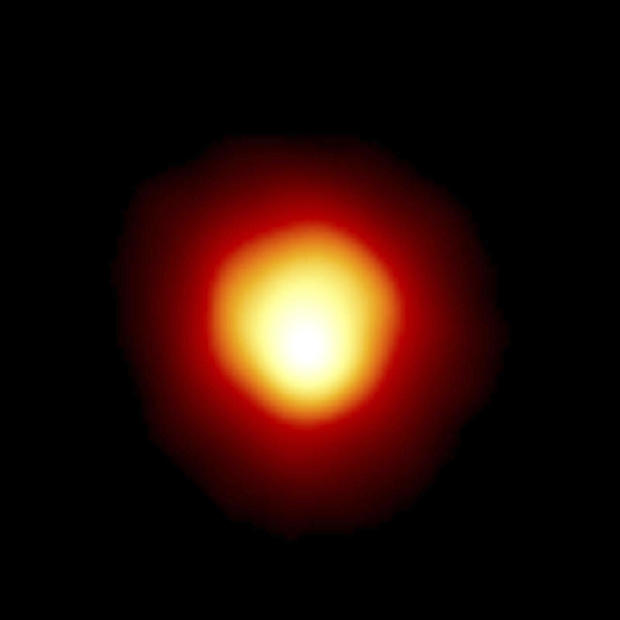Betelgeuse, one of the brightest stars in the sky, will vanish in a one-of-a-kind eclipse soon. Here's how to watch it.
One of the biggest and brightest stars in the night sky will momentarily vanish as an asteroid passes in front of it to produce a one-of-a-kind eclipse. The event should be visible to millions of people and it will also be livestreamed.
The rare and fleeting spectacle, late Monday into early Tuesday, will likely be visible to people along a narrow path stretching from central Asia's Tajikistan and Armenia, across Turkey, Greece, Italy and Spain, to Miami and the Florida Keys and finally, to parts of Mexico.
The star is Betelgeuse, a red supergiant in the constellation Orion. The asteroid is 319 Leona, a slowly rotating, oblong space rock in the main asteroid belt between Mars and Jupiter.
How far is Betelgeuse from Earth?
An estimated 700 light-years away, Betelgeuse is visible with the naked eye. Binoculars and small telescopes will enhance the view. A light-year is 5.8 trillion miles.
When will Betelgeuse explode?
Scientists expect Betelgeuse to go supernova in a violent explosion within 100,000 years.
Astronomers hope to learn more about Betelgeuse and Leona through the eclipse, which is expected to last no more than 15 seconds.
"For a very short time, we will see the legendary Orion constellation without its famous, orange shoulder, as it will be in the distant future, once Betelgeuse will have exploded as a supernova and faded to black," according to the Virtual Telescope Project, which will provide a live webcast from Italy.
By observing an eclipse of a much dimmer star by Leona in September, a Spanish-led team recently estimated the asteroid to be about 34 miles wide and 50 miles long.
There are lingering uncertainties over those predictions as well as the size of the star and its expansive atmosphere. It's unclear if the asteroid will obscure the entire star, producing a total eclipse. Rather, the result could be a "ring of fire" eclipse with a miniscule blazing border around the star. If it's a total eclipse, astronomers aren't sure how many seconds the star will disappear completely, perhaps up to 10 seconds.
"Which scenario we will see is uncertain, making the event even more intriguing," said astronomer Gianluca Masi, founder of the Virtual Telescope Project.
How to watch the eclipse
Viewers can watch a livestream of the event hosted by the telescope project. The livestream is scheduled to begin at 8 p.m. EST on Monday.
According to Sky & Telescope, the eclipse will occur at around 8:17 p.m. EST.
"This kind of occultations are very useful to constrain the shape of the asteroid involved," said Masi. "Here, we hope to even investigate the surface of the involved star, too: Betelgeuse. It is a large red supergiant and while Leona will move in front of it as seen from Earth, we will be hopefully able to learn more about its large convective cells, driving its variable brightness."
Betelgeuse is thousands of times brighter than our sun and some 700 times bigger. It's so huge that if it replaced our sun, it would stretch beyond Jupiter, according to NASA.
At just 10 million years old, Betelgeuse is considerably younger than the 4.6 billion-year-old sun. Scientists expect Betelgeuse to be short-lived, given its mass and the speed at which it's burning through its material.
After countless centuries of varying brightness, Betelgeuse dimmed dramatically in 2019 when a huge bunch of surface material was ejected into space. The resulting dust cloud temporarily blocked the starlight, NASA said, and within a half year, Betelgeuse was as bright as before.




